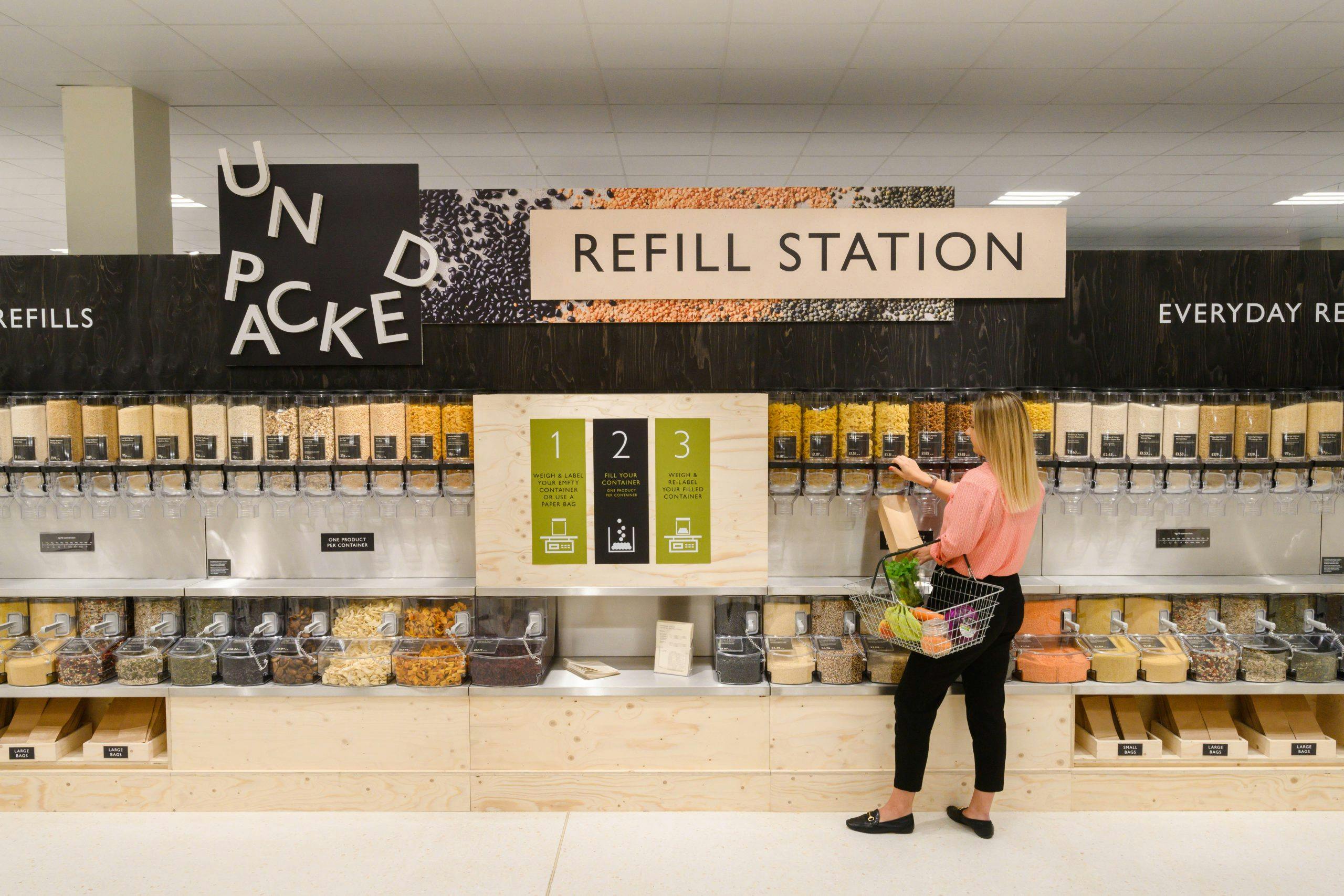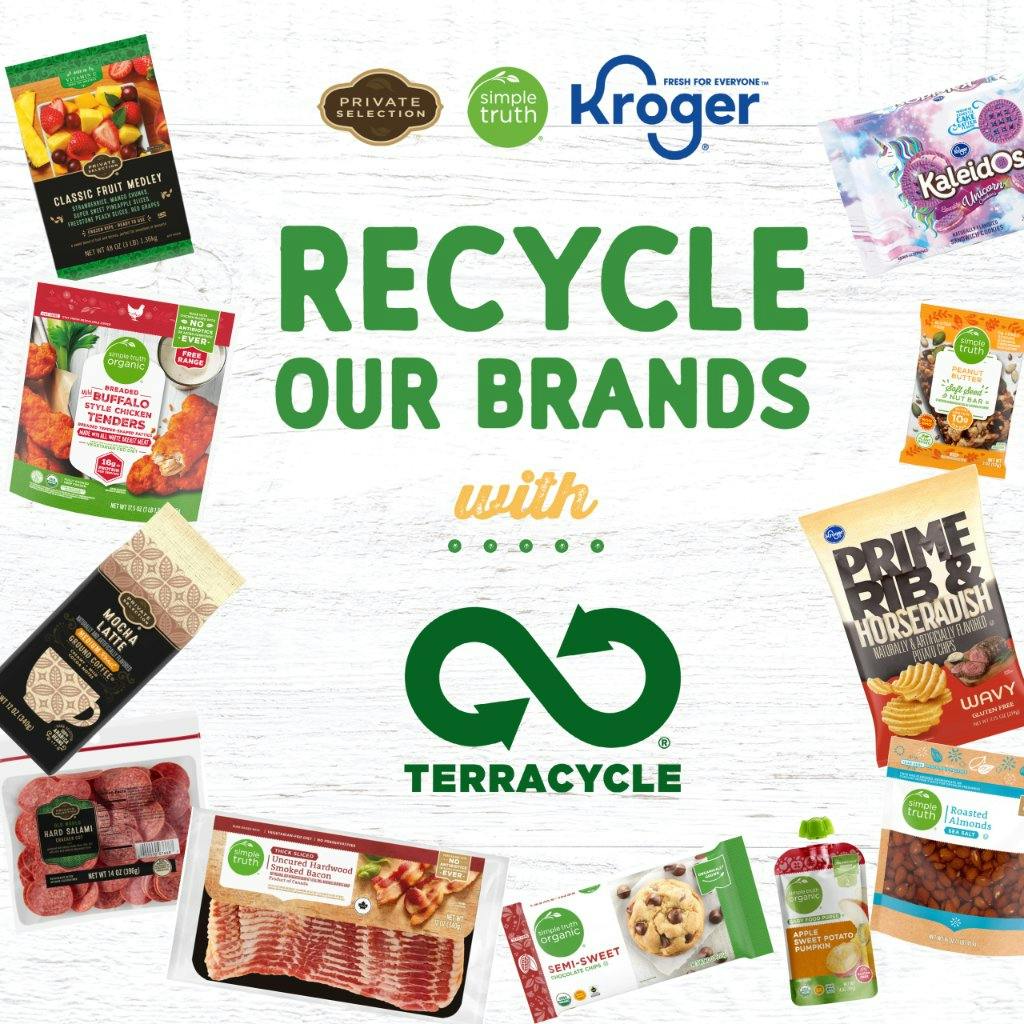A few years ago, I asked my father-in-law how the world has changed the most in his 90-odd years. I expected answers involving communications, computers, or phones.
“Plastic,” he responded. There was none when he was young.
Look around you: How much plastic can you see? Plastic is a growing global problem. It fills our landfills where it emits chemicals, and it ends up in our oceans, where sea creatures ingest it, or get it stuck around their heads, killing them or affecting their quality of life.
However plastic, especially single-use plastic, has been getting more attention in recent years and grocery retailers are starting to take notice.
Britain takes the lead
In the U.K., in February, Tesco reported that it has removed 1.6 billion pieces of plastic from its business, including bags from deliveries, plastic forks ( offering a wooden alternative), trays for whole chickens, and straws.
Using its “4Rs” packaging strategy, Tesco aims to Remove plastic where it can, Reduce where it can’t, Reuse more, and Recycle what’s left. Tesco has removed plastic wrapped multipacks of cans; wrapping around beer and cider; extra lids on products like wipes, creams, yogurts, and desserts; sleeves for greeting cards; and fruit packaging.

To launch the program, Tesco gave suppliers a list of preferred materials that are easier to recycle and stated that it reserves the right to no longer stock products in excessive packaging or hard-to-recycle materials.
Sainsbury’s is aiming to reduce plastic packaging by 50% by 2025. Some innovative moves include:
- Removing single-use plastic produce bags and replacing them with reusable bags made from recycled bottles.
- Eliminating plastic film from broccoli, and switching to loose broccoli.
- Changing private label tea bags to plant-based, compostable plastic bags.
Retailer Waitrose launched Waitrose Unpacked in 2019, featuring only bulk products, and has since expanded it to four stores. Micro versions are also available within traditional shops, so consumers can refill containers with products like frozen fruit, rice, cereals, and washing detergent.

American efforts, too
American stores are also working on this problem. New Seasons Market, Portland, Ore., offers a Ditch the Disposables program in its deli, through GO Box, a circular system through which customers take food in reusable containers and return them for washing. However, many stores have a mountain of clamshells in desserts departments, so there is more that needs to be done.
In March, Greenpeace USA ranked major American supermarkets on their efforts to reduce plastic.
Pittsburgh, Pa.-based Giant Eagle topped this list. It’s working with Fifth Season to reduce plastic packaging on leafy greens by 40% per package. It’s also moved to biodegradable compressed recycled paper for its Great to Go meal kits and is working on sustainable private label packaging.

Kroger came fourth and is aiming for all private label packaging to be 100% recyclable, compostable, or reusable by 2030. The retailer also aims to have at least 10% recycled content in its own-brand packaging.
Kroger has also removed 20% of the weight of plastic water bottles in several markets and the Cincinnati-based chain partners with TerraCycle to encourage plastic recycling for many popular Simple Truth private label items.
“In 2020 alone, Kroger customers set up more than 6,200 collection points and returned more than 55,000 pieces of Simple Truth packaging for recycling as part of the TerraCycle recycling program,” says a Kroger spokesperson.
Supermarkets can be leaders
In Australia, Coles recently stopped including plastic measuring scoops in two private label laundry powders, saving 3.3 tons of plastic per year.
Aldi Australia cut plastic packaging by 4% in the first year of its initiative to reduce packaging in its private label, totaling around 2,200 tons of plastic. Moves have included switching Yoconut dessert tubs from plastic to paperboard packaging, and the removal of plastic trays from some packaged produce.

“It is important that supermarkets make moves to reduce plastic,” says Neil Saunders, Managing Director and Retail Analyst at GlobalData in New York City.
While he’s seeing moves such as reducing plastic bags, Saunders says there are more effective things supermarkets can do. “This can be as simple as removing plastic lids from bottles. The amount of plastic used per bottle is small, but collectively this saves a huge amount of plastic. Reducing the weight and density of plastic is also an effective way of cutting volumes. Introducing bulk sections and refill stations for things like laundry detergent also gives customers more options.”
However, there are three main challenges, he points out:
- Much is out of the control of supermarkets, who can’t dictate to suppliers what materials they use.
- There’s a balance to be struck between sustainability and practicality. Plastic is good at keeping products fresh and preventing damage; if food spoils and is unused, that’s not sustainable.
- Plastic is very cost-effective.
Grocery stores need to take steps to lead all consumers in the battle against plastic and for the protection of our planet, Saunders explains. “People want ease and they don’t want to have to go out of their way to reduce plastic—therefore they want supermarkets and manufacturers to do the work for them.”

